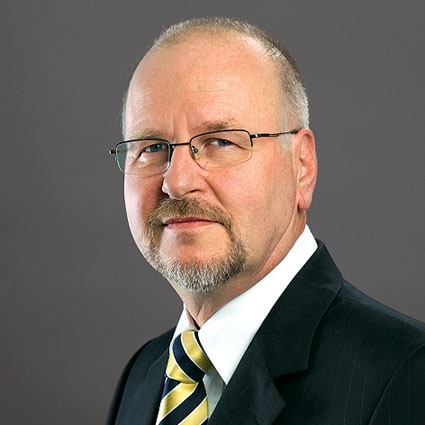Fundamental Questions Concerning Aviation Security
Once again it has become apparent that airports need a closer network of security measures, since aircraft remain a possible target for terrorists and can quickly become bombs. Air...

Once again it has become apparent that airports need a closer network of security measures, since aircraft remain a possible target for terrorists and can quickly become bombs. Airport infrastructures comprise some of the most important and vulnerable lifelines of our civilisation. There are constantly thousands of people passing through them, and millions of tons of freight are handled. All this makes them extremely vulnerable and requires both sensitive and well thought-out early warning security systems and well-trained personnel. GIT SECURITY is monitoring the current security situation and asks well-known experts under what conditions people and technology will remain able to provide the required level of aviation security.
Closing Loopholes and Detecting Dangers
Air travel and security are an inseparable combination. All passengers, as well as airport visitors, expect the very highest standards of personnel, technology, maintenance and organisation. This includes the security of the aircraft itself, air traffic control, and also the most stringent possible protection against criminals and terrorism. According to statements by the German security authorities, the danger of a terrorist attack in Germany is as great as it has ever been. Among other things, such attacks could have the objective of influencing Germany to withdraw its troops from Afghanistan. These security risks must be countered with appropriate measures. This is an important question of image for both airports and airlines alike. In addition, there is a requirement for the smooth and economically justifiable handling of traffic with the least possible interference to passengers and visitors. It is essential that there is no opportunity for explosives, home-made devices, weapons and dangerous objects of all kinds to be brought on board aircraft. In the age of suicide bombings, this places very great demands on security checks. As explosives can be transported in any conceivable form (as liquids, powders, pastes or solids) both on the person and in baggage, smooth and acceptable checks become a central security issue.
Aviation Security Checks and the German Federal Police
Among other things, the German Air Security Act (LuftSiG) regulates the general and particular powers of aviation security authorities, security measures by airport operators, security measures by airlines, and the tasks and authorities of pilots. As the „border police", the German Federal Police are responsible for compliance with the LuftSiG and the monitoring of incoming and outgoing traffic, as well as combating any associated criminal behaviour. According to Art. 19 LuftSiG, it is prohibited to carry explosives, ammunition, detonators, inflammable liquids, corrosive or toxic substances, gases in containers, as well as other substances which on their own, or in combination with other substances, could cause an explosion or a fire, either in hand luggage or on the person in aircraft or in areas of airports which are not generally accessible, and offences are subject to a jail sentence of up to two years or a fine. According to the Federal Ministry of the Interior, legally prescribed air transport security checks are carried out at a high level against the background of an existing abstract increased terrorist threat situation in Germany. The incident in Detroit was used by the German Federal Police as an occasion to directly supplement this high standard of security with additional control measures. The German security authorities are in close contact with the experts from the American air transport security authority TSA.
Synergy Effects
In future, the police and the customs authorities will cooperate more closely. A spokesperson for the Ministry of Finance announced that a joint working party from the Ministry of Finance and the Ministry of the Interior will be set up for this purpose. However, the Federal Government denied reports of a fusion of the police and the customs authorities. The working party is simply to analyse „interfaces" between the security authorities, including in the field of IT. The objective is higher efficiency. The magazine „Der Spiegel" had previously reported that the fusion of the enforcement areas of the customs authorities and the police was under consideration. In this way, about 17,000 jobs, e.g. with the criminal investigation department of the customs office, customs investigation and the financial investigation of illegal work, could be removed from the responsibility of the Ministry of Finance and reallocated to the Federal Police and the Federal Criminal Investigation Office. This could invole the elimination of about 5,000 jobs due to synergy effects. It was further stated that planning was intended to be started as early as this spring.
Authorised Passenger Checks
Air security assistants (from authorised private companies) carry out personal and baggage checks according to Art. 5 of the LuftSiG under the supervision of the Federal or State authorities. This law prescribes that both passengers and their luggage must be examined for dangerous and prohibited substances. In order to do this, it is necessary to examine all items of clothing which are being carried, to frisk people conscientiously and to use gate and hand scanners to detect metals. However, it is difficult to thoroughly check passengers using conventional techniques, and this fact has provided fuel for the discussion regarding whole body scanners. Further powers enabling airport operators and airlines to assign security services to private security companies are provided by Articles 8 and 9 of the LuftSiG.
Discrete Whole-body Scanners Throughout Europe
In the Netherlands, whole-body scanners are already being used for flights to the USA, and were the first country in Europe to implement the rapid introduction of whole-body scanners for routine passenger checks. At Schipol International Airport near Amsterdam, all passengers flying to the USA must pass through a so-called nude scanner. Further airports and destinations are to follow. This should have a marked improvement on on-board security. Resistance against the widespread use of nude scanners is reducing - not least because the manufacturers have improved the technology. The next generation of discrete devices only reveals what is strictly necessary. Airport personnel never get to see the detailed original images. If the automatic system triggers an alarm, the relevant person is simply frisked in the conventional way and scanned with a metal detector. In addition, in the normal course of events, each image from the automated check is deleted.
The chairman of the Federal Government Internal Committee, Wolfgang Bosbach hopes that this equipment will be introduced in Germany as early as this year. A whole-body scanner, which has been further developed by the German Federal Police, was presented to the Federal Ministry of the Interior in January. The device, which was modified in the Federal Police Academy in Lübeck, makes the intimate areas of passengers unrecognisable, thus respecting personal privacy. The new development also takes the question of health hazards into consideration. The Federal Minister of the Interior, Dr. Thomas de Maizière, had stated that he is in favour of the use of whole-body scanners at airports, providing that they ensure protection of the personal rights of passengers „to the fullest extent" and do not present any health risks. The CDU politician told the Süddeutsche Zeitung that new types of equipment were currently being developed to make the images of the body structure of passengers even more unclear, whilst enabling the detection of dangerous objects. Whether and when such devices will go into series production will be decided upon during this year. In addition, at the end of January, at the informal council of EU Ministers of Justice and the Interior in Toledo, he proposed that in future whole-body scanners should be used as a voluntary option to passengers at German airports. As an alternative, everyone should also have the possibility of being frisked by security staff - as previously. This would provide a method of testing whether the new technology is accepted by the general public. The minister expects that appropriate scanners will be available in the summer for the test phase, and generally supports the introduction of the devices throughout Europe.
Baggage Screening Improvement
Supervisory authorities in Europe and the US demand that airports and airlines carry out a complete check of all baggage. Normally the baggage is inspected with X-rays. The potential danger from explosives doubles these requirements, and it is not easy for inexperienced staff to identify explosives from the X-ray image. The latest equipment uses four X-ray sources simultaneously and can also detect liquids. The X-ray sources produce several independent imaging and data results. This enables detection of explosives on the basis of the determination of the relative atomic weight and the density of the material. Two image results are available to the security staff for the visual inspection of the baggage. These provide a detailed depiction of the contents of the baggage from two highly different perspectives. In addition, the police and the customs authorities use sniffer-dogs to examine baggage and freight for explosives and drugs.
Security Coordination
In addition to the involvement of the Ministry for the Economy, the Federal and State Police and the Customs authorities, all security issues require the employment of well-trained staff to undertake the various tasks. Air security assistants carry out the body and baggage checks as per Art. 5 LuftSiG. This law prescribes that both passengers and their luggage must be examined for dangerous and prohibited substances. The airport operator sets up a security centre and according to the location, fulfils the following security tasks with its own Airport Security and private security services:
- Surveillance of the apron and the airport premises,
- Security patrols and site protection, checks of people and goods,
- Additional manual checks and special inspections,
- Surveillance and searching of security areas,
- Multi-level baggage checks, transport of valuables,
- Security clearance of private aircraft,
- Checks in the First-Class Terminal and checks of VIP passengers,
- Traffic control in the terminal area
- Interventional staff and securing of construction sites.
Only the complete coordination of all security tasks by a single body can create a close-meshed security network.
Aviation Security by the Airport Operator
At German airports, air security duties are carried out by the airport operator itself, subsidiary companies or various private providers, who fulfil the conditions of the LuftSiG. In addition, according to Art. 8 LuftSiG, all airport operators are obliged to check all persons, any objects they carry (including tools), and all vehicles at the transition points from the public areas or the operative area to the security sensitive area, to the same level as is prescribed for the checking of passengers. In order to do this, airport operators have defined so-called Critical Parts, which can only be accessed via specially designed control points. This ensures that persons (staff, employees of external companies) working on the so-called apron or in the security-sensitive areas of the terminal are checked in the same manner as passengers, and therefore attacks on air traffic by these persons can be ruled out as far as possible.
In the opinion of Erich Keil, Chairman of the managing board of FraSec Security Services GmbH, a 100 % subsidiary of Fraport AG: „We all make a great deal of effort, both with regard to staff and money, and jump at every technical innovation. However, an objective assessment of the technology rather than political views should be made before the introduction of a new technology, in order to obtain an actual increase in security from the introduction. From my point of view, in future the relevant authorities in the EU and in Germany should also consider what alternatives exist in order to check passengers (e.g. in the form of profiling), and use these as additional methods. Profiling is already being used successfully in various countries. Selection of persons and their examination by professionally qualified personnel could therefore be used to filter out possible suspects. Using this method, a combination of profiling and the appropriate technology could present a better option for security checking than is currently possible in the context of our checks.
Air Security by Private Providers
In recent years, members of the Bundesverband Deutsche Wach-und Sicherheitsunternehmen e.V. (BDWS) [Federal Association of Surveillance and Security Companies] have taken over an increasing number of services at airports, fulfilling the requirements of Aviation Security. Wolfgang Waschulweski, president of the BDWS confirms this development and explains: "At present, about 15,000 employees from private security services are deployed at German airports. Of these, 6,600 are aviation security assistants for checking passengers and baggage according to Art. 5 of the Aviation Security Act. The importance of private security providers for aviation security was made clear at the 2nd Aviation Security Conference of the BDWS, which for the first time was held with the Federal Police Executive Committee. 170 experts from the world of politics, public authorities and trade unions as well as airport operators, airlines and service providers, met in Potsdam to exchange ideas. The President of the Federal Police, Matthias Seeger, emphasised that private security providers are dependable partners for aviation security. Only the close coordination of all the players in the field of aviation security can unify the aspects of security, passenger convenience and economy."
Smiths-Heimann Personal Scanners
We asked the Vice-President of Smiths-Heimann, Bernhard Semling, about state-of-the-art technology with regard to personal scanners, and to what extent his company is developing detection devices which achieve optimum results in terms of respecting personal rights. Bernhard Semling explains: „We have been working on the development of personal scanners for several years and we are confident that this technology will be available for operational deployment this year. The highest priority is to combine high security requirements with elimination of health hazards and the protection of privacy. We expect a new automatic assessment software to be ready for production in the near future, so that we will be able to test this. This will only show a video image of the fully dressed person, in which a red frame will indicate concealed objects to the operator. In combination with trained personnel and other supplementary technologies at the checkpoint we expect a considerable contribution to an increase in security."
Security Measures Are Worthwhile
Sky marshals, computer searches and body scanners - after the bomb alert at Munich Airport, politicians and police are stepping up security. The EU Ministers of the Interior agreed more stringent checks with their US colleague Janet Napolitano. However, modified body scanners are also necessary. Although resistance to these may still be widespread, in future passengers in Germany will have to get used to stricter security checks, possibly using methods like these. This also means additional body searches of passengers and longer waiting times for checking in. Searches at airports are important and necessary. Passengers do not care who carries out these measures, as long as they are carried out quickly, correctly and thoroughly. Regardless of the provider, all airport security measures are a part of the company philosophy of the operator and the airlines. No-one can afford to make savings in security or to allow vital checks to become a matter of routine. Excellent staff training and the latest technical aids are essential for the entire industry. No passenger would accept a lack of security on the ground or in the air, even if such measures cost time and money. In the long term, such important preventative measures are always worthwhile. Aircraft are still the world‘s safest means of transport, and they should remain so in the future.









